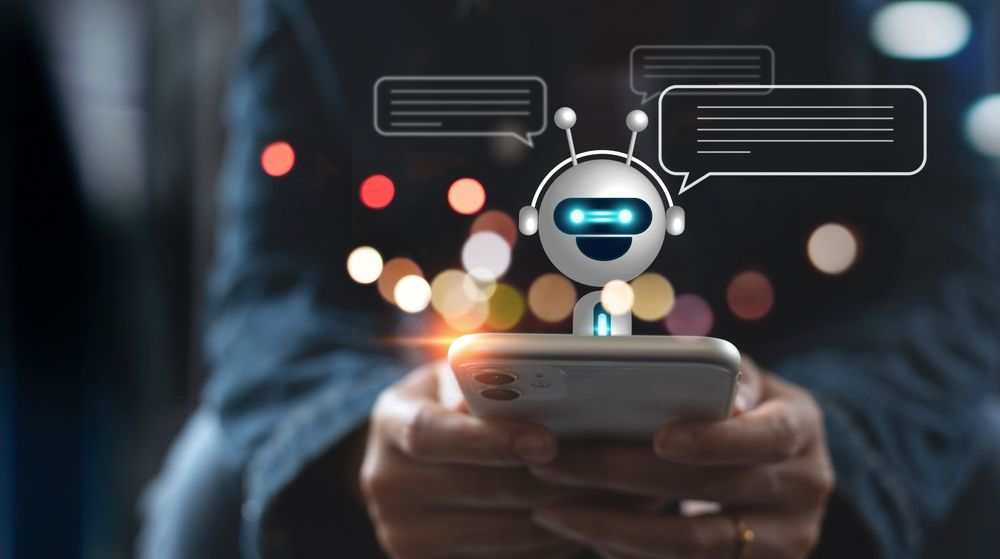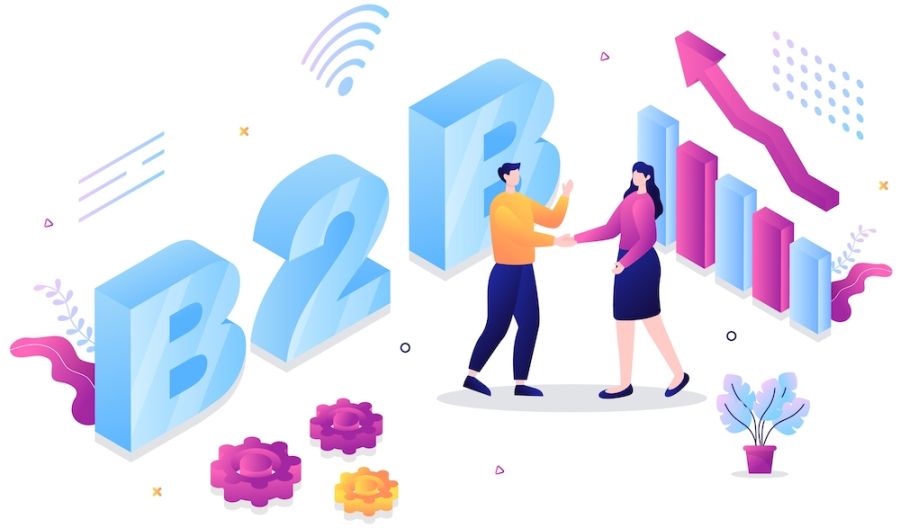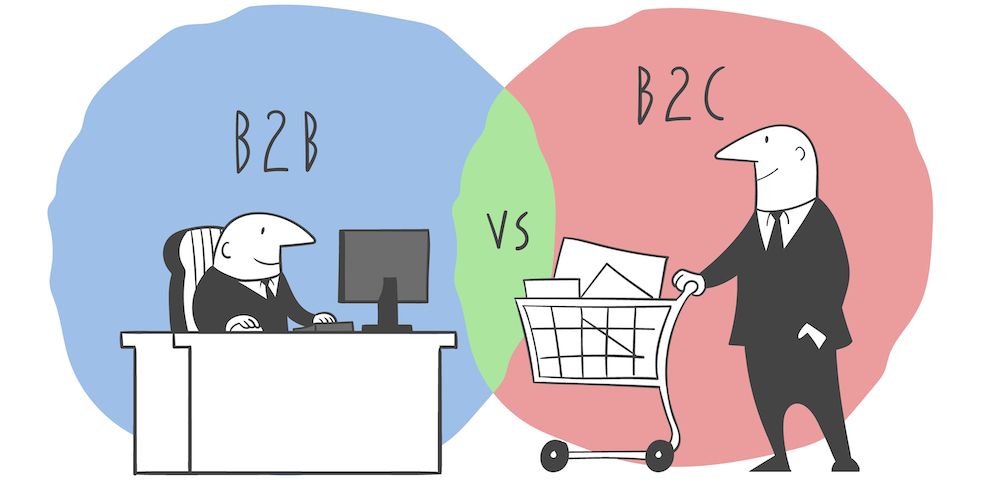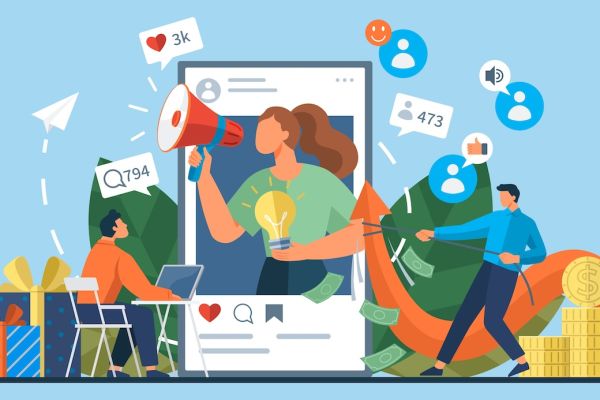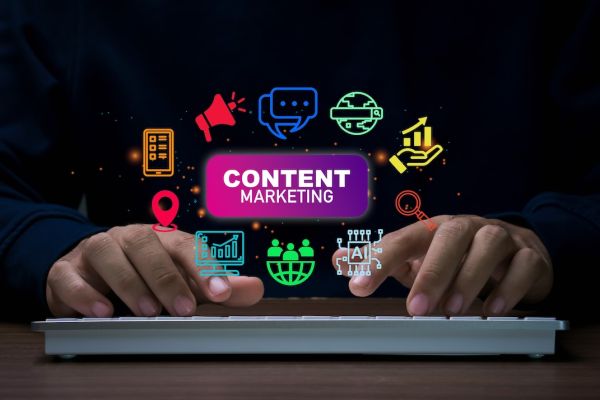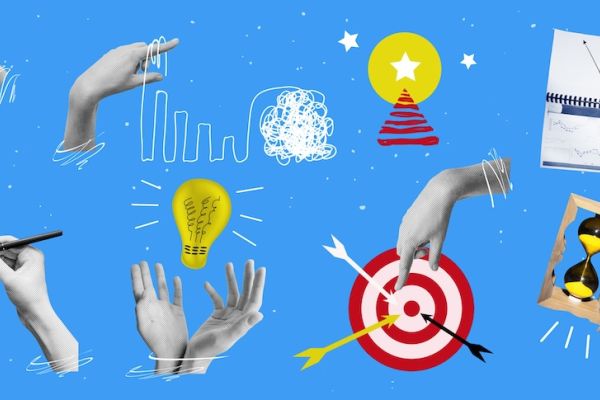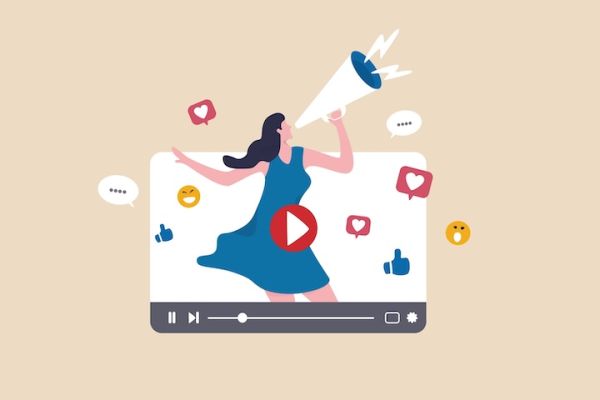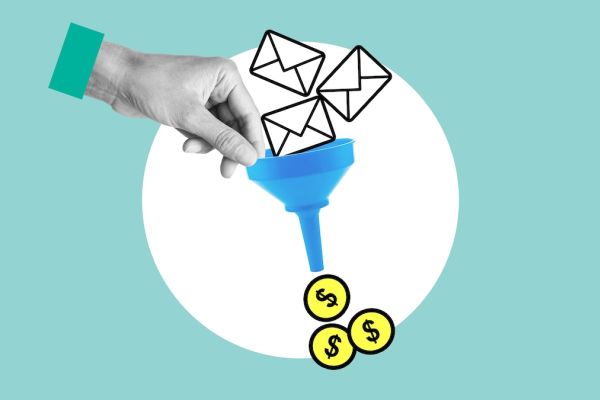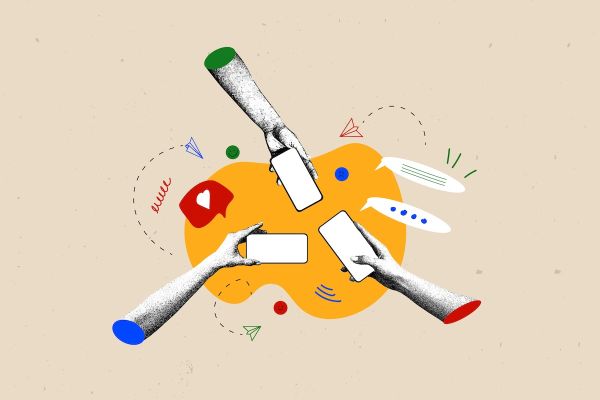B2B marketing
What is B2B marketing?
It refers to marketing activities where a business wants to use marketing tools to make its product or service known to other businesses and companies - and of course to sell it.
Who uses B2B marketing?
The answer may be clear from the previous paragraph: businesses that want to reach the B, or business target group.
The target group here is in fact very broad: in addition to companies, it includes government institutions, organisations, very small businesses and multinationals.
A typical B2B customer is therefore an organisation that does not use B2B marketing services for one person. Here we can think of quite extreme, perhaps at first sight strange things.
Take for example, a zoo that buys, say thousands, perhaps millions of crickets a year to keep certain species of animals in good health. In this case, the seller of the crickets is one B, the other is the zoo itself - don't be fooled by the fact that the focus of B2B sales can be on such unusual items or foods and institutions!
Another special feature of B2B marketing is that B2B buyers are usually looking for the goods or services they need to do business. For a small manufacturer of mugs, this might be the raw material, ceramics, for a large automotive company the right spare part, for a software developer the operating system or a special program for a particular computer.
So it is clear that anything can be a B2B product. The point is that the specialised B2B business unit (within the company) or B2B company finds its market.
To get there, of course, you need an effective marketing agency (we can recommend one while we're at it).
Here we can stop for a word to find another three-letter acronym - important to know this one too!
What is the difference between B2B and B2C?
B2C marketing is therefore the most common form of marketing seen-heard-read by non-professionals: a business proposition in the form of a product or service, addressed to the consumer, the individual.
B2C marketing: larger target group
The difference between B2C and B2B is that B2C targets the average person and therefore a much larger audience.
For example: a certain drink is only for 18-25 year olds, or a pair of trainers for amateur runners, or a certain colour of paint for people starting to renovate their house. In all three cases, many, many people may be among the target customers.
B2B marketing is more specific because it tries to reach fewer target groups - there are far fewer organisations than individuals. B2C marketing, on the other hand, thinks in terms of the masses.
The purpose of B2B marketing
The above already sets out the answer: in B2B marketing, you need to find the right person from a particular company, explain the offer and influence them.
So, on the surface, it's ultimately about getting the attention of one person. According to the rules of marketing, it is possible to prepare the ground for the right B2B marketing activity by taking into account the target market, the customers, their expectations and needs, and by mapping the competitors.
The B2B marketing decision mechanism
B2C communication to consumers uses a variety of tools. For example, the Coca-Cola example is much more about appealing to our moods and emotions: it conjures up a beach in summer and an intimate cabin in winter. It doesn't necessarily make a rational argument, although it does, especially if the product has a clear advantage over others or costs less for a certain period of time.
In such cases, the purchase is often decided in a moment in the store, especially if other store facilities are available - for example, the product is placed near the checkout, which is easy to spot during the waiting minutes...
In B2B marketing, there is no impulse buying. Since it is typically a higher value purchase that does not happen often in a given period, rational reasoning also plays a more important role in the communication process.
The B2B marketing process
The first and most important thing for any company that wants to sell in B2B is to have a relationship with its customers. The emphasis here is on personalisation, which is why we find sales people, contacts and accounts trying to make personal meetings on the buyer's side.
B2B marketing collects so-called leads, i.e. enquiries (e.g. a form filled in on a website by a representative of the company you are interested in), and conversions, and the aim is always to build a personal relationship.
A conversion is achieved when there is a response to the message, a reaction to the marketing activity.
What B2B marketing tools exist?
Social media
Email marketing
CONTENT MARKETING
SEO
WEB SITE
Mistakes to avoid!
- Planning starts with gathering information - don't skimp! A good B2B marketing agency will accurately assess the target audience, the buying process - which in B2B marketing can be different for each client - and gather all the relevant information. The more you know, the closer you can get to the customer.
- Only advertise where it's relevant! It's pointless to spend money on a platform or channel where the target group cannot be found.
- Don't confuse B2C with B2B! What works for one may not work for the other. Business customers take longer to make a decision than individual consumers. B2C marketing is fighting for different goals with different tools.
- Don't abandon your B2B marketing campaign! Constantly measure, calibrate, intervene if necessary. A credible B2B marketing agency has the experts: PPC specialists, digital experts, strategists.
Look for a company where these mistakes cannot happen.
Contact us and let's talk! We will be delighted to assist you!










